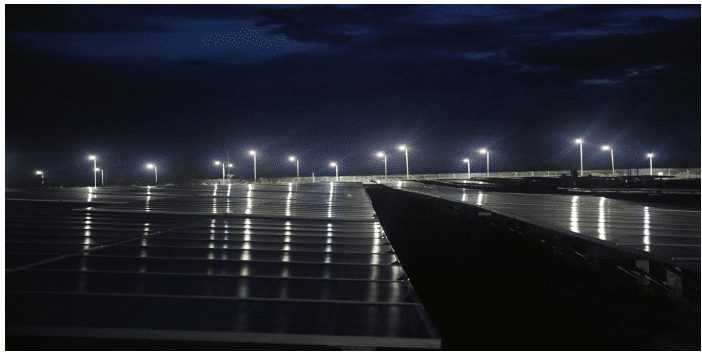Nigeria Has Made A 2.9 MW Renewable Energy Move – And It’s The First Of A Lined-Up University Series

Late last week, Nigeria welcomed the very first of her solar hybrid projects, and the event marked the beginning of incredible happenings that will define the escape from the country’s electricity challenges.
Vice President Yemi Osinbajo commissioned the project at Alex Ekwueme Federal University, Ndufu-Alike Ikwo in Ebonyi State. According to reports, the installation holds the capacity to generate 2.8 MW of clean energy that will provide sustainable power for 7,700 students and 1,819 staff members in the tertiary institution.
The Managing Director and CEO of the Rural Electrification Agency, Damilola Ogunbiyi said the initiative would, no doubt, do a solid for the quality of education, research and healthcare services in Nigerian federal universities and teaching hospitals.
“I’m proud of the role that women have played in the successful implementation of this project from the head of the project being a woman to the female STEM students that all worked on the project,” a statement read.
The Federal Government is using the program to intervene, focusing on the development of the country’s off-grid sector, dedicated and independent power plants.
The initiative is also looking to rehabilitate existing distribution infrastructure to supply clean and reliable power to 37 federal universities and seven affiliated university teaching hospitals.
This is, however, not the only effort of its kind. According to Ogunbiyi, other similar projects are waiting to be commissioned, including 7.5 KM of solar-powered street lights for brightness and safety sistered by a cutting-edge renewable energy training center.
While the project had high participation of women, VP Osinbajo used the medium to encourage Nigerians to embrace the emerging renewable off-grid sector.
According to him, clean energy is poised to generate significant impact for Nigerian markets, as well as the unserved, underserved communities and higher institutions of learning.
“With the growing solar generation, in particular, a more decentralized energy system is emerging as we encourage more private sector participation, collaborating with the Federal Government.
This development comes at a time when all hopes are high for the realization of sustainable power supply in the West African country. This expectation was brought on when the Buhari-led administration signed a deal with Germany’s Siemens to add 6,000 MW of electricity to the country’s rather insufficient capacity lower than 4,000 MW.
On the impact of the FUNAI solar hybrid installations thus far, the EPC contractor and CEO of Sterling & Wilson, Deepak Thakur, said: “The installed 2.8MW solar hybrid power plant will decommission petrol and diesel generators with a capacity of 1.54MW, creating a cleaner and environmentally friendly atmosphere for the university community.”
Featured Image: Rural Electrification Agency